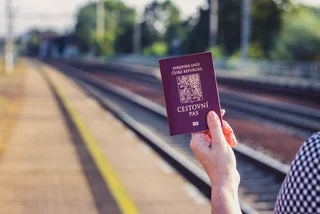Planning a summer getaway from Czechia? Be prepared to pay more—and follow new rules. From tourist taxes in London and Rome to behavior restrictions in Bali and Dubrovnik, many of the world’s top destinations are cracking down on overtourism with added fees, stricter access limits, and even digital entry permits.
Whether it’s entrance fees, increased accommodation taxes, mandatory travel permits, or steep fines, here’s what travelers need to know this holiday season—and what to watch out for as you plan future trips.
PARTNER ARTICLE
Popular European destinations
Italy (Venice, Rome, Pompeii)
Tourists visiting Venice between April and July will need to pay a EUR 5-10 (CZK 124-CZK 249) entrance fee for day trips in the center, with the higher rate applying for last-minute bookings. Groups are capped at 25 people, and loud tour guides using megaphones are banned.
In Rome, expect tighter access at the Colosseum, with a 3,000-person limit at any given time, while Pompeii restricts daily entries to 20,000, meaning early reservations are essential.
Poland
Photography enthusiasts should be aware that many public areas in Poland, including train stations and ports, are now off-limits for filming and photography.
Signs will indicate these restricted zones, but fines for violations can be steep, ranging from PLN 5,000 to PLN 20,000 (CZK 29,318 to CZK 116,551). This could complicate travel for bloggers, vloggers, and social media influencers looking to capture their journeys.
UK (London)
Visitors from the EU, including Czech tourists, now need an Electronic Travel Authorization (ETA) to enter the UK, costing GBP 16 (CZK 468) for two years. Even short visits require this digital permit, and children aren’t exempt.
London is also considering a 5-percent tax on overnight stays, which could significantly raise accommodation costs in a city already known for its pricey hotels. This will add to the cost of visiting major attractions like the Tower of London and Buckingham Palace.
Croatia (Split and Dubrovnik)
Travelers to Split and Dubrovnik should be mindful of strict public behavior rules, including bans on public drinking, nudity, and loud behavior. Violating these can result in fines or even removal from the area.
The city also enforces limits on accommodation availability, so booking early may become more critical as these restrictions tighten. This historic hotspot, known for its Game of Thrones connections, is trying to reduce the pressure on its ancient streets and beaches.
Scotland (Edinburgh)
Edinburgh will introduce a 5 percent tourist tax on overnight stays in 2026, which could significantly increase accommodation costs for festival-goers and those visiting during the peak summer season.
Tourists booking now for next summer may already be subject to this fee, adding to the overall cost of experiencing the city’s historic architecture and cultural festivals. The revenue will be used to support local infrastructure and cultural projects.
Spain (Barcelona, Canary Islands, Mallorca)
Tourists visiting Barcelona will face increased accommodation taxes, now up to EUR 7 (CZK 174) per night in luxury hotels, while cruise passengers pay additional fees for day visits.
The Canary Islands have introduced a smaller per-person daily tax, and Mallorca has raised its accommodation tax to EUR 6 (about CZK 150) per night. Visitors should also be prepared for strict behavior rules, including noise limits and bans on public drinking, which can result in fines.
Portugal (Azores, Madeira)
Tourists heading to the Azores or Madeira must pay a EUR 2 (CZK 49.9) nightly tax, capped at three nights in the Azores and seven in Madeira, for those over 12 or 13 years old, depending on the island.
This added cost, typically collected at hotel check-in, will apply regardless of how long you plan to stay, potentially impacting budget travelers. Tourists should also expect stricter waste management rules and single-use plastic bans.
The Netherlands (Amsterdam)
Visitors to Amsterdam should budget for the highest tourist tax in Europe, currently set at 12.5 percent of accommodation costs.
From 2035, cruise ships will be banned from the city center, and only zero-emission boats will be allowed in the central canals, potentially limiting popular canal tour options. Those seeking short-term rentals like Airbnbs may also face tighter restrictions as the city seeks to curb mass tourism.
Greece
Travelers are only required to pay the resilience tax, which ranges from EUR 0.5 to EUR 4 during the low season and from EUR 2 to EUR 15 in the high season, depending on the type of accommodation. There is no additional fee, such as the EUR 8 daily tax—this does not apply to travelers.
Those visiting the Acropolis will need to plan ahead, as daily visitor numbers are capped at 20,000, with timed entry slots required. This could mean longer waits or sold-out days during peak travel seasons, impacting last-minute planners.
Norway
Visitors to Norway may soon need to factor in a 3 percent tax on overnight stays, aimed at protecting the country’s fragile natural landscapes. Local governments will decide whether to implement the tax, potentially creating regional differences in travel costs.
Additionally, the country is limiting cruise ship numbers in sensitive areas, which could affect those planning to visit fjords and other popular natural sites.
LONG-HAUL destinations
US
The new government administration has been cracking down on allowing people to enter the U.S., with several instances of people being turned away at the border for lacking the correct documentation. When planning your trip to the U.S., be sure you have everything you need as well as supplementary paperwork, like your return ticket and proof of accommodation.
Thailand
Travelers to Thailand now need to complete a Digital Arrival Card (TDAC) before arrival, replacing the old paper forms. This electronic registration, required from May 2025, gathers personal, health, and accommodation information, adding an extra step before travel.
For those accustomed to spontaneous trips, this will require more planning. The move aims to streamline border control but could catch unprepared visitors off guard, especially those arriving from less-regulated travel environments.
Indonesia (Bali)
Tourists heading to Bali in 2025 will need to pay an IDR 150,000 tax upon arrival (introduced last year), intended to support local conservation. Travelers should also budget for extra fees if they plan to visit other nearby islands, as re-entry is taxed separately.
Visitors must also follow strict behavior codes, including bans on public nudity, drunk driving, and disrespecting sacred sites, with violations potentially leading to steep fines or even deportation.












 Reading time: 5 minutes
Reading time: 5 minutes 


























